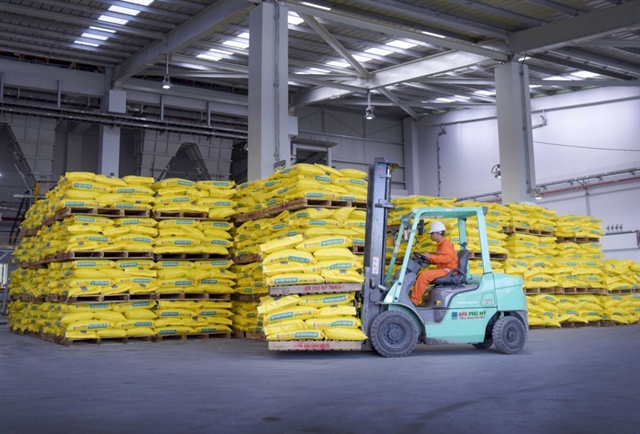The recovery of global demand to rebuild economies while supply disruptions remain has pushed prices of a series of goods to record highs since mid-2020.

The recovery of global demand to rebuild economies while supply disruptions remain has pushed prices of a series of goods to record highs since mid-2020.
Of which, fertiliser prices have continuously climbed from the bottom hit in May 2020, with DAP fertiliser price jumping 125 per cent, Urea fertiliser price up 121 per cent, and phosphate fertiliser price increasing 130 per cent.
In a recent report, Agriseco Research said that the strong rallies in fertiliser prices are due to the supply disruption of input materials for production such as sulfur, natural gas or coal. And these materials’ prices have also risen sharply.
From the bottom hit in 2020, the prices of natural gas and coal, which are the two main materials of fertiliser production, have both surged.
Agriseco Research believes that the upward momentum will continue as countries see higher gas demand amid declines in reserves in the coming winter. With coal, China's plans to cut coal mining and production can keep prices higher.
Nevertheless, the ongoing uptrend of materials prices will affect profit margins as higher product prices will reduce competitiveness.
Fertiliser prices may continue rising higher, helped by China's restriction on fertiliser exports.
While it is just in the short term until supply and demand balance, this is good news for domestic producers like Phu My Fertiliser (DPM), Ca Mau Fertiliser (DCM) and Binh Dien Fertiliser (BFC) to raise their domestic market shares, increase output and export value to other countries.
Moreover, given the lack of supplies to meet demand, while China has issued policies to limit fertiliser exports to ensure supply for the domestic market, the fertiliser prices are accelerating.
Agriseco Research believed that the higher prices were the main driver for outstanding business results of Viet Nam’s fertiliser companies in the first six months of 2021, such as Phu My Fertiliser (DPM) recorded profit after tax of VND684 billion (US$30.1 million) in the second quarter, up 126 per cent year-on-year.
In general, fertiliser producers in Viet Nam can produce and supply to the market all kinds of Urea, phosphate, NPK, DAP and MAP fertilisers.
However, for nitrogen SA and potassium fertilisers, due to the limited supply of potash - magnesium ore in the country, all of them must be imported to serve domestic demand and as raw materials for the production of NPK complex fertilisers.
In the first half of 2021, inorganic fertilisers output reached 4.69 million tonnes, an increase of 11.7 per cent over last year. The total amount of imported fertilisers was 2.31 million tonnes, while exports reached 667,000 tonnes, up 15 per cent and 44.7 per cent over the same period last year, respectively.
Agriseco Research attributed the significant rises to the stagnation in 2020, adding that the economic recovery also boosts factories operating at higher capacity to meet demand.
Towards the end of 2021 and into 2022, fertiliser prices may slow down but continue to remain at high levels, Agriseco Research said in the report. Therefore, opportunities for Vietnamese fertiliser enterprises come from rising demand when agricultural production is restored, especially when entering the winter-spring rice crop.
Potential stocks
The fertiliser industry is still one of the few to benefit and expect positive business results in 2021, despite COVID-19.
Although some stocks have risen relatively strongly, and market valuations are no longer attractive, Agriseco Research believed that there are still many investment opportunities due to growth potential in the last months of the year.
DPM and DCM are two leading stocks selected by Agriseco Research. It said that these two companies have a good foundation, benefit from policies, as well as rising fertiliser prices. This will provide opportunities to accumulate stocks that are expected to surge in the next 3-6 months during the market’s correction sessions.
On the Ho Chi Minh Stock Exchange (HoSE), DCM shares closed Monday morning at VND29,600 per share, up 4.96 per cent, while DPM shares inched 1.31 per cent higher to VND38,600 per share. — VNS
- Tags
- Fertiliser stock





